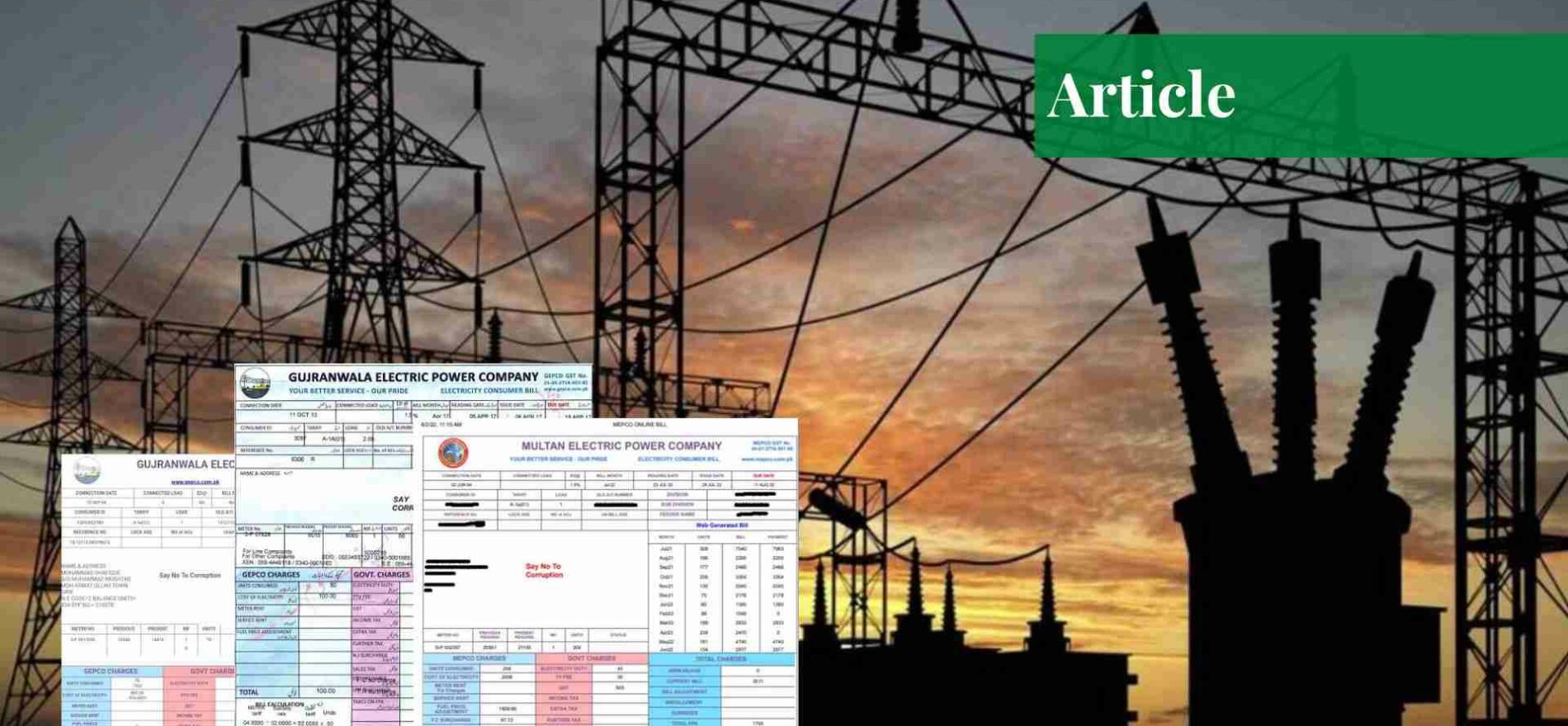Mr Naseerullah Khan has an undergraduate degree in Mechanical Engineering.
Overview of the Energy Sector
The current installed capacity in the country is 41500 MW, but the transmission capacity of the country is only 22000 MW. Pakistan has a total electricity requirement of 27000 MW (megawatt) in peak season, and this need decreases to 22000-23000MW in the winter season. Line losses are also high. Therefore, Pakistan faces a shortfall of 7000MW in peak season.
Ten public DISCOs and commercial distributors work together to distribute electricity. Nonetheless, electricity theft is extremely common in Pakistan. For example, over the last 15 months, electricity worth 467 billion rupees has been stolen.
Expensive Electricity
Pakistan produces expensive electricity, as the country gets half of its energy mix from thermal energy. Imported products such as machinery and fuel are used to generate electricity, making Pakistan’s energy sector largely dependent on the international market. The Russia-Ukraine war and the devaluation of the Pakistani rupee against the dollar have also added fuel to this fire. So, the electricity generation cost has soared and, thus, there is a hike in electricity bills.
The country’s ever-expanding circular debt has also led to skyrocketing electricity rates. The current circular debt is estimated to be over 2.6 trillion rupees which accounts for around 7.8 percent of Pakistan’s GDP. This massive sum is a significant strain on the country’s GDP. The IMF has advised the government to levy high power rates in order to lower the national debt. As a result, nine separate forms of taxes, including a 17 percent GST, are placed on electricity bills this month.
Over the last four decades, successive governments have played a role in filling this turgid bubble. They failed to take the essential steps to remedy the problem. The pressure that has built up in the balloon as a result of many governments’ lack of care is poised to explode. Electricity blackouts, exacerbated by exorbitant prices, have rendered people powerless. As a result, people have turned to the streets to protest their mistreatment.
The Agreements with IPPs
In 1994, the Pakistani government signed its first agreement with IPPs to address the country’s shortages. The two parties agreed on rates that were significantly higher than those found elsewhere in the world. Other IPPs were awarded the responsibility to create power for the country in 2002, 2009, and 2014, following the same previous trend. The absurdity of these agreements is that they are based on the ‘take or pay model’. Whether these IPPs work at 100% efficiency or 50% efficiency, they will be paid for their installed capacity.
Another issue with these agreements is the payment currency. IPPs are paid in US dollars. This has worsened the situation, as the devaluation of the rupee has led to a sudden increase in the cost of electricity generation, which ultimately impacts the common citizens. Similarly, successive governments of the past are also responsible because of their limited focus only on installing new production plants, ignoring investments in the transmission and distribution sector.
The transmission capacity of the country is far less than the needs of the country. Thus, citizens are prey to the endemic of continuous energy outbreaks. In the same way, ignoring the reforms in public-owned DISCOs is also an issue on the part of governments. Michael Kugelman has cited this issue in these words, “Pakistan will generate electricity of 128000 MW by 2030, however, the energy crisis will remain as it is because it is not an issue in itself. The actual issue is that of mismanagement.”
Searching For Solutions
High production costs are a direct cause of high bills. Renegotiation with the IPPs is one of the urgent solutions to the problem. There is a dire need to change the ‘take or pay model’ agreements with IPPs. Substituting capacity payments with production payments and paying in domestic currency instead of dollars. Pakistan would become able to absorb global energy shocks to a certain degree through these negotiations.
The provision of free electricity to public employees in different sectors should be halted as well. According to a report, WAPDA employees use free electricity worth approximately 8.5 billion rupees. Similarly, officials of higher cadres and some industrial sectors also enjoy the privileges of free and subsidized electricity. For a country with a weak economy such as Pakistan, there should be either a total cut of free electricity or a limited free consumption of 200-500 units. In the same way, there must be subsidies for low-income families.
In the past year and a half, electricity amounting to approximately Rs.467 billion has been stolen. DISCOs must be empowered to conduct operations against electricity theft and eradicate this menace as soon as possible. Moreover, an installment program should be devised for those people who cannot pay the bills. Long-term solutions to the problem include the need for the government to move towards renewable sources of energy.
Malaysia and Indonesia moved towards the renewable energy sector in the 1990s when Pakistan was busy with the installation of IPPs. They are independent of global energy shocks today because they adopted sustainable options. Pakistan can follow the same path to utilize its hydroelectric, wind, and solar energy to become self-sufficient as well as to attain clean energy. Every government in Pakistan should follow a democratic approach and take the technical experts and public in confidence before finalizing any agreement. Most of the decisions made by Pakistani governments are political rather than rational.
The Reko Diq case and the IPP agreements case speak volumes about the lack of rationality of political figures. A pragmatic solution, involving technical experts, that is suitable for the needs of the country should be adopted. In this way, Pakistan would be able to avert the dangers of mass unrest in the country, cater the future needs, and remain relevant in the rapidly changing world.
If you want to submit your articles, research papers, and book reviews, please check the Submissions page.
The views and opinions expressed in this article/paper are the author’s own and do not necessarily reflect the editorial position of Paradigm Shift.



















